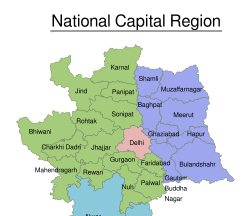The internal dynamics within the Congress party have shifted as the G-23 leaders assert themselves amid growing tensions within the INDIA bloc over the handling of Operation Sindoor. As the party faces mounting criticism for its stance, which some argue risks alienating allies and emboldening Pakistan, the five prominent figures from the G-23 faction have taken a front-line role in defending the party’s position and attempting to restore unity.
Operation Sindoor, a government-led initiative targeting alleged cross-border terror infrastructure, has generated considerable political heat. The BJP and its affiliates have aggressively pushed the narrative, accusing Congress of weakness and failure to protect national security. This has amplified pressure on the Congress leadership, especially since voices within the INDIA bloc, a coalition of opposition parties, appear increasingly fragmented. The Congress party finds itself challenged not only by external adversaries but also by the shifting allegiances and critical voices within its supposed allies.
The G-23 group, which first gained prominence two years ago demanding organisational reforms and a more transparent leadership structure within Congress, has emerged as an unexpected bulwark in this political storm. Comprising veteran politicians with deep roots in the party, the G-23 leaders have historically been viewed as critics of the party establishment. However, their current efforts suggest a strategic pivot aimed at reinforcing Congress’s core values and preserving its standing within the opposition alliance.
This cohort includes seasoned figures such as Ghulam Nabi Azad, Anand Sharma, and Manish Tewari, whose political weight and experience bring gravitas to the party’s defensive posture. Their intervention comes at a critical juncture, as the Congress leadership grapples with balancing assertiveness against the government’s narrative and maintaining cohesion within the diverse INDIA bloc coalition. The G-23 leaders’ outspoken defence of the party’s approach to Operation Sindoor signals a deliberate attempt to reclaim control of the narrative and counter accusations of isolation.
The INDIA bloc, an alliance comprising multiple regional parties alongside Congress, has been under strain as differing political calculations emerge over how to confront the BJP’s policies. Some allies have voiced discomfort over Congress’s approach, perceiving it as potentially jeopardising the bloc’s broader strategic objectives. The divergence has sparked debate over whether Congress is adopting a too confrontational or too conciliatory stance, with the G-23 leaders seeking to navigate these complexities by asserting a middle ground that upholds firm opposition while fostering collaboration.
The political implications extend beyond party lines, as national security discourse dominates public consciousness. Operation Sindoor, officially portrayed as a crackdown on terrorism and cross-border infiltration, has become a polarising issue, with opposition parties divided on messaging. Critics accuse the BJP of politicising security to consolidate electoral gains, while supporters argue that strong action is necessary to counter ongoing threats. Congress’s struggle to articulate a coherent response underscores the broader challenge opposition parties face in addressing national security without alienating voters or allies.
Behind the scenes, internal party dynamics reveal contrasting views on leadership and strategy. The G-23’s emergence as defenders signals a recalibration of influence within Congress. Their advocacy for greater transparency and accountability, initially framed as internal reform, now plays out in the public arena as they seek to steer the party through a period of adversity. The faction’s capacity to unify dissenting voices and present a more assertive opposition front could influence Congress’s trajectory in the coming months.
The BJP’s robust campaign against Congress over Operation Sindoor has been matched by efforts to fragment the opposition coalition. By exploiting ideological differences and policy disagreements, the ruling party aims to isolate Congress and weaken its appeal. The G-23’s involvement thus takes on added significance, as their leadership may help mitigate the perception that Congress is increasingly isolated within the INDIA bloc.
The G-23 leaders have also called for renewed focus on grassroots mobilisation and clear messaging that resonates with a broad spectrum of voters. They argue that the party must move beyond factional disputes and present a united front capable of challenging the BJP’s dominance. This approach emphasises strategic communication, highlighting governance issues, social justice, and economic concerns alongside national security.
The Congress leadership’s openness to the G-23’s increased visibility reflects pragmatic recognition of the faction’s political capital. While earlier tensions between the party high command and the G-23 created uncertainty, the current context necessitates collaboration. Observers note that the integration of G-23 perspectives into the party’s mainstream discourse may contribute to greater organisational resilience and improved public perception.
The evolving role of the G-23 is likely to influence Congress’s policy priorities and electoral strategies ahead of key regional and national elections. Their experience in navigating complex political landscapes offers a valuable resource for the party as it confronts both internal challenges and external pressures. The balance they strike between reformist zeal and strategic pragmatism will be crucial in shaping Congress’s ability to remain a viable contender.
The wider INDIA bloc continues to face obstacles in maintaining cohesion, with individual parties weighing their regional interests and national ambitions. Congress’s position within this coalition remains pivotal, given its historic stature and organisational reach. The G-23’s efforts to safeguard the party’s credibility and ensure constructive engagement with allies contribute to the ongoing negotiation of opposition unity.
Operation Sindoor’s aftermath has exposed vulnerabilities in Congress’s political strategy, yet it has also sparked a re-examination of leadership roles and alliances. The G-23 leaders, once seen primarily as critics, are now instrumental in the party’s attempts to recalibrate and present a revitalised front. Their involvement underscores the importance of adaptive leadership in navigating the shifting terrain of Indian politics.




 Bangladesh Ends $21 Million Shipbuilding Deal with Kolkata Firm
Bangladesh Ends $21 Million Shipbuilding Deal with Kolkata Firm 